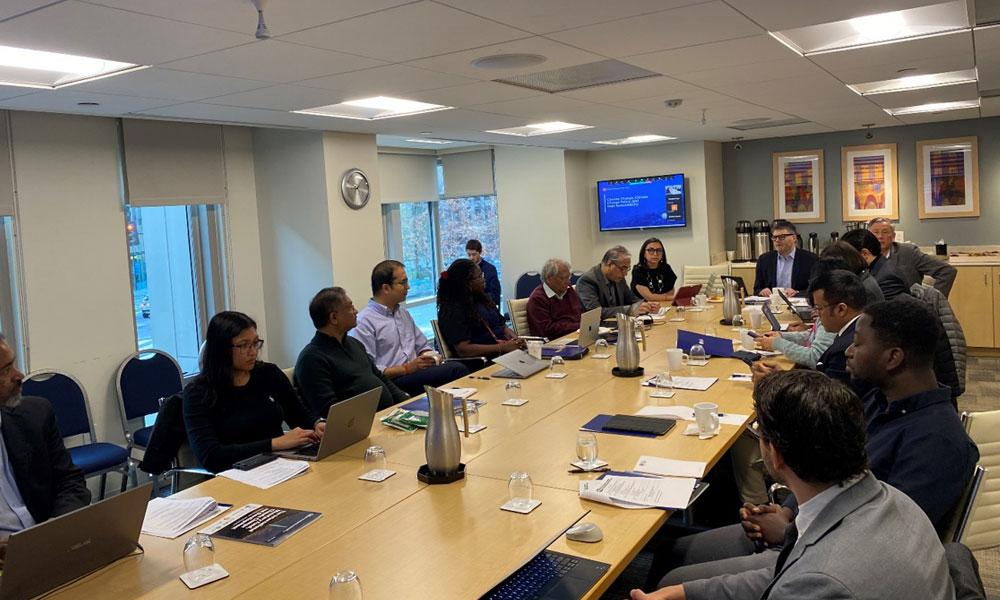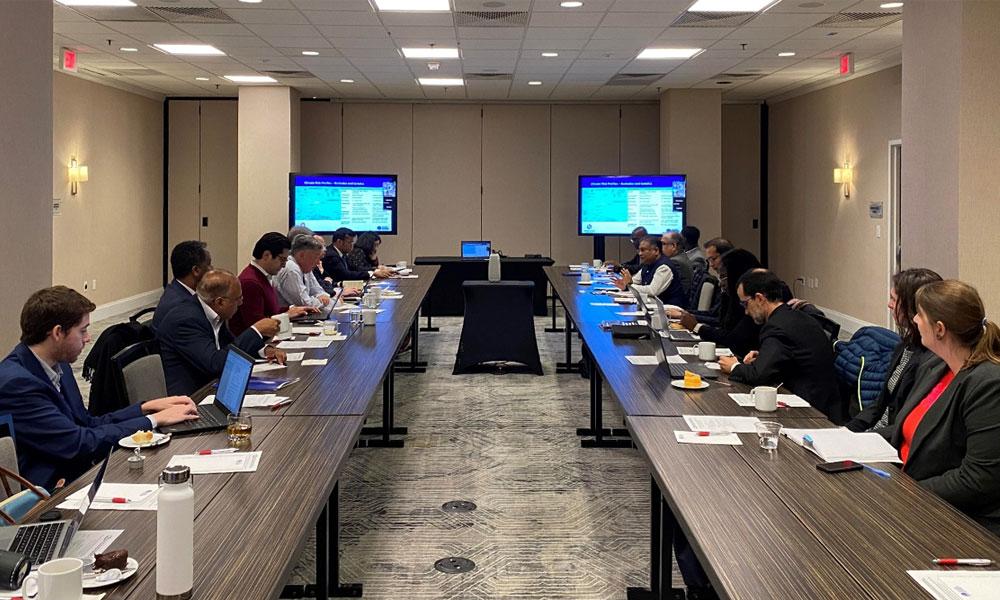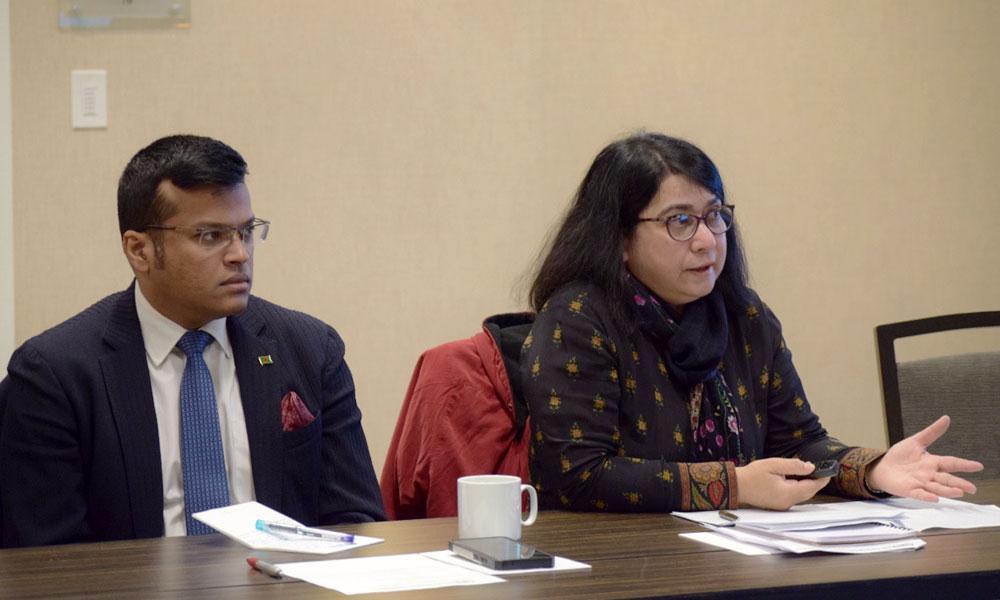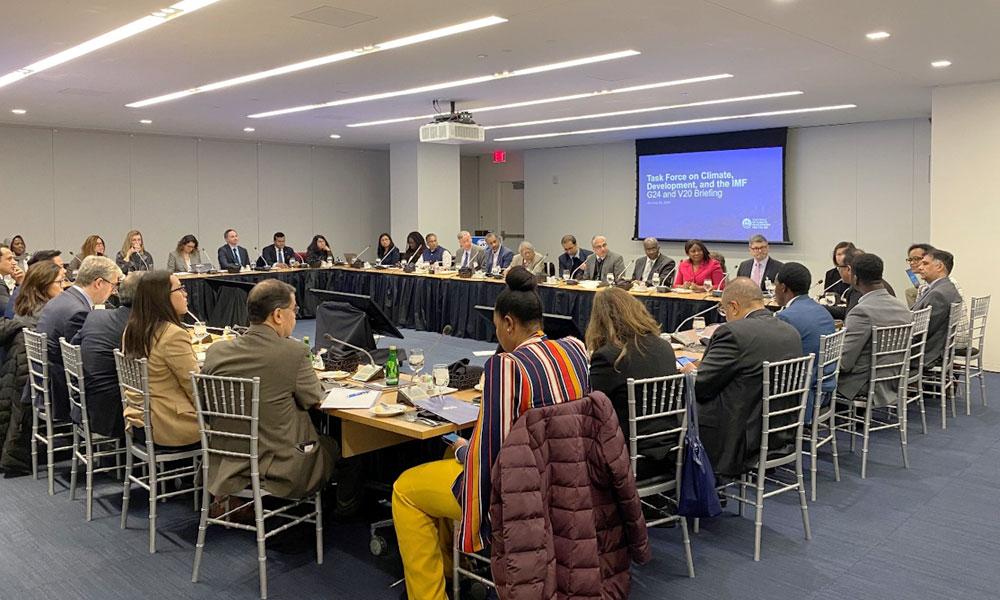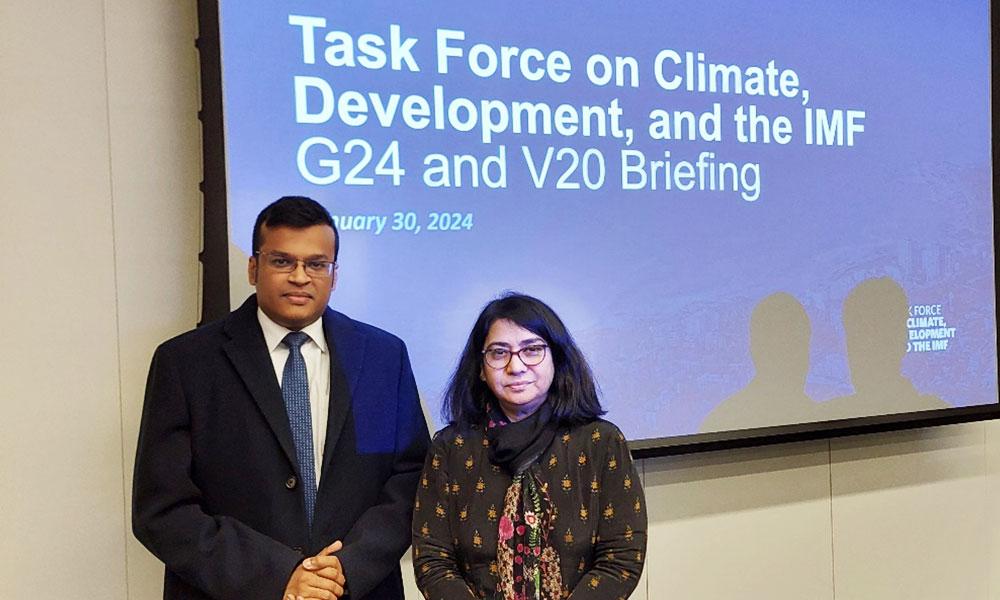
Task Force on Climate, Development and the IMF
ABOUT
Climate change and policy responses to it pose significant risks to financial and fiscal stability, poverty and inequality, and the long-run growth prospects of the world economy.
Given its unique position as the sole multilateral, rules-based institution responsible for ensuring the stability of the international financial and monetary system, the International Monetary Fund (IMF) plays a pivotal role in facilitating the shift towards a low-carbon and resilient global economy.
The Task Force on Climate, Development and the International Monetary Fund, a unique global consortium of experts, is dedicated to advancing a development-centered approach to climate change at the IMF. It is crucial that the global community supports climate resilience and transitions to a low-carbon economy in a just manner. The IMF’s role in facilitating a globally coordinated response is not just vital but also ensures fairness in the transition.
Recognising that a shift into the climate policy landscape will require significant reform to the IMF’s surveillance and advisory functions and finance toolkit, the Task Force is committed to producing a series of research products. This rigorous research, coupled with critical policy dialogue, will provide empirical evidence that can inform this transition, ensuring the highest standards of quality and reliability.
The Boston University Global Development Policy Center has invited the Centre for Policy Dialogue to join the Task Force on Climate, Development and the IMF.
OBJECTIVES
The Task Force’s objective is to continue advancing a development-centred approach to climate change at the IMF. The core outputs, common across all of the Task Force institutes, involve research and analytical work, policy engagement and dialogue, and advancing a shared narrative on the need to place development at the core of the IMF’s approach to climate change. The proposed study will aim to broaden the dissemination of its research findings through publications and outreach.
MEMBER INSTITUTIONS
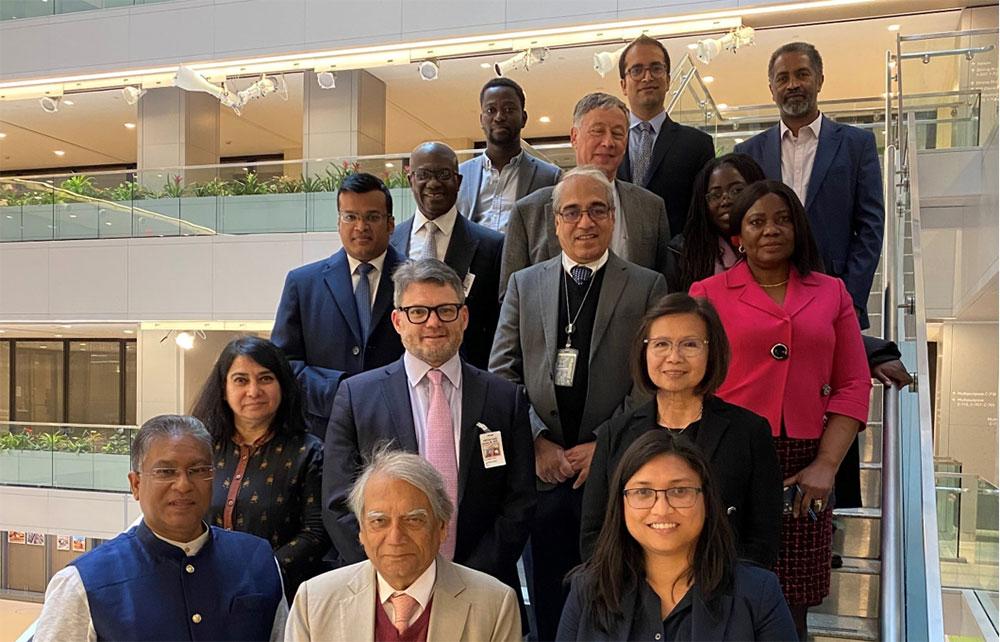
- Intergovernmental Group of 24 (G24)
- Vulnerable Group of 20 (V20) Ministers of Finance
- African Center for Economic Transformation
- African Economic Research Consortium
- Boston University Global Development Policy Center
- Centre for Policy Dialogue
- Centre for Social and Economic Progress
- Financial Futures Center
- Macro and Green Finance Lab, National School of Development, Peking University
- United Nations Economic Commission on Latin America and the Caribbean
EVENTS
SPECIAL REPORT
IMF 2030: A Transformative Action Agenda for Achieving Climate and Development Goals
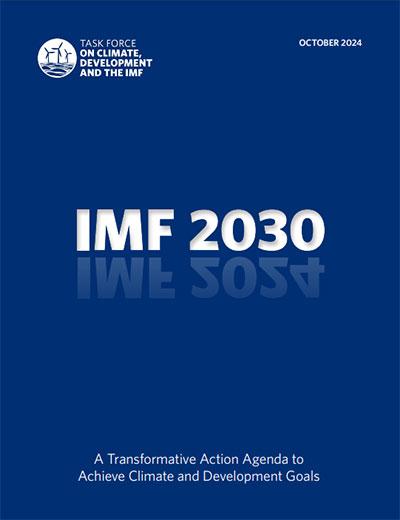
SPECIAL REPORT
Mobilizing Innovative Sources of Finance: Lessons from the RST
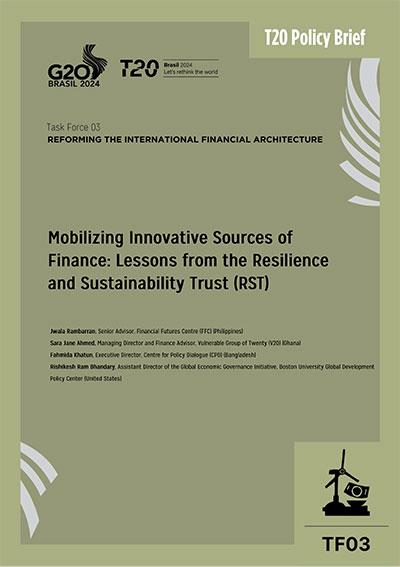
SPECIAL REPORT
Room to Grow – Integrating Climate Change in Debt Sustainability Analyses for Low-Income Countries
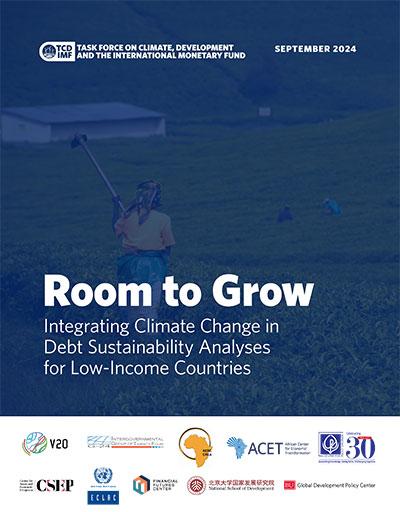
SPECIAL REPORT
Achieving Catalytic Impact with the Resilience and Sustainability Trust
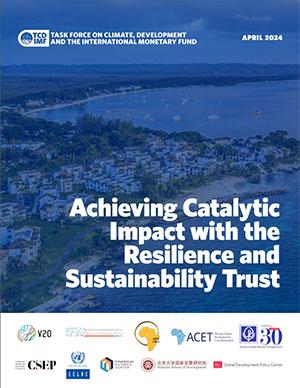
BLOG
It’s the IMF’s Turn: An Evolution for Development and Climate Change Goals
How the IMF Can Strengthen the Resilience and Sustainability Trust to Promote a Just,...
RESEARCH TEAM
Dr Fahmida Khatun
Executive DirectorDr Fahmida Khatun is currently the Executive Director of the Centre for Policy Dialogue (CPD), a leading think tank in South Asia. She has completed a BSc and MSc in Economics from Jahangirnagar University, Bangladesh, an MSc in Environmental and Natural Resource Economics and a PhD in Economics from the University College London (UCL), UK. She did her post-doctoral research at the Earth Institute, Columbia University, USA, as a Fulbright Scholar in 2015. She also participated in a Leadership Decision Making course at Harvard University, USA, in 2019. Before joining CPD, she worked as a Research Fellow at the Bangladesh Institute of Development Studies (BIDS), as an Environmental Specialist for the United Nations Development Programme (UNDP), and as an Economist for the United States Agency for International Development (USAID). Dr Khatun has taught Economics at the University of Greenwich, UK and Environmental Economics at North South University, Bangladesh. Fahmida is proactively involved in developing and implementing research in collaboration with international research organisations on issues of mutual interest. She has published widely in professional journals at home and abroad and has authored books, book chapters, monographs and policy briefs in areas of her interest and expertise. She is invited regularly to write for the East Asia Forum based in the Crawford School of Public Policy at the Australian National University and Trade for Development News by Enhanced Integrated Framework (EIF) of the World Trade Organisation (WTO). Dr Khatun was a member of the Panel of Economists for the Eighth Five-Year Plan (2021-25) formed by the Bangladesh Planning Commission. She served as a member of the Advisory Committee for the National Human Development Report prepared by the Economic Relations Division, Government of Bangladesh. She was a Director of Janata Bank Limited, Bangladesh's second-largest state-owned bank (2008-2011) and a Director of the SME Foundation of Bangladesh (2011-2013). Dr Khatun is also a Non-resident Senior Fellow at the Atlantic Council, a think tank based in the USA. She is a member of the High-level Advisory Board on the Productive Capacities Index (PCI) of the United Nations Conference on Trade and Development (UNCTAD). Dr Khatun’s research interests and expertise include macroeconomic policy, climate change, environment, energy economics, green economy, aid effectiveness, international trade and WTO issues, digital economy, youth employment, health issues, interests of Least Developed Countries (LDCs), Sustainable Development Goals (SDGs), and women’s contribution to the economy.
Syed Yusuf Saadat
Research FellowMr Syed Yusuf Saadat is an economist currently working as a Research Fellow at the Centre for Policy Dialogue (CPD), a civil society think tank which promotes inclusive policymaking in Bangladesh. Mr Saadat’s expertise is in assessing economic indicators and policies, analysing data, writing, and teaching. He has extensive knowledge of economic theory and command over econometric methods used for estimating models. Mr Saadat is an award-winning researcher who has undertaken research for organisations such as Friedrich-Ebert-Stiftung (FES), Deutsche Gesellschaft für Internationale Zusammenarbeit (GIZ), International Development Research Centre (IDRC), UK Aid, Foreign, Commonwealth, and Development Office (FCDO), British Council, International Growth Centre (IGC), KIVU International, Embassy of Denmark, Netherlands Embassy, Embassy of the People’s Republic of China, Embassy of Japan, Swiss Agency for Development and Cooperation (SDC), United Nations Economic and Social Commission for Asia and the Pacific (UNESCAP), United Nations Department of Economic and Social Affairs (UNDESA), United Nations Democracy Fund (UNDEF), United Nations Entity for Gender Equality and the Empowerment of Women (UN Women), and United Nations Development Programme (UNDP). During his tenure at CPD, Mr Saadat has supervised and managed the work of several research associates, programme associates, research interns, and surveyors. He has co-authored the book “Youth Employment in Bangladesh—Creating Opportunities, Reaping Dividends” published by Palgrave Macmillan. He is a member of the South Asia Economic Policy Network of the World Bank Group, the Bangladesh Economic Association (BEA), and the Young Scholars Initiative (YSI). Mr Saadat frequently writes about economic issues of national interest and contemporary relevance. His articles have been published in the editorial and opinion pages of The Daily Star and The Financial Express, two of the leading English-language newspapers in Bangladesh. Mr Saadat’s research interests include income, wealth, and gender inequality, as well as labour economics, financial economics, international economics, and climate change.
Afrin Mahbub
Programme AssociateMs Afrin Mahbub is a Programme Associate (Research) at the Centre for Policy Dialogue (CPD), a civil society think tank promoting inclusive policymaking in Bangladesh. Ms Afrin has completed her Bachelor of Social Science in Economics from American International University-Bangladesh (AIUB) with the highest distinction. She is pursuing her Master of Science in Economics from North South University (NSU). Ms. Mahbub has received the Daily Star Award, Edexcel Award, Academic Scholarship from AIUB, and the AIUB Vice Chancellor’s Award for outstanding academic results. Ms. Mahbub has undertaken research projects from the Embassy of Japan in Bangladesh, the Embassy of Denmark, the Embassy of Netherlands in Bangladesh, the Foreign, Commonwealth, and Development Office (FCDO) of the United Kingdom (UK), KIVU International, and the International Growth Centre (IGC). Ms. Mahbub has played a key role as a researcher in CPD’s Green Cities Initiative project, which was implemented in collaboration with KIVU International, with support from IGC and FCDO, UK. As part of the Green Cities Initiative, Ms. Mahbub has conducted extensive research on plastic pollution in Dhaka and contributed to several publications, including reports, evidence papers, briefing notes, and blogs. Before joining CPD, she worked as an Undergraduate Research Assistant at the Bangladesh Institute of Development Studies (BIDS). Ms. Mahbub has recently co-authored a book titled “Bangladesh-Japan Partnership for the Next Development Journey”. She has also contributed to other research projects during her time at CPD, including the “Independent Review of Bangladesh’s Development (IRBD)” and the “Analysis of the National Budget for FY2022-23”. Ms. Mahbub’s research interests lie in trade, climate change, and human capital development.
In collaboration with



